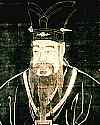 (source)
(source)
|
Confucius
(27 Aug 551 B.C. - 21 Nov 479 B.C.)
Chinese philosopher who taught ethics, emphasizing that rulers exist to secure happiness of their subjects, and that the family provides the model for all social relationships. Although he made no significant scientific discoveries of his own, his philosophies and beliefs were a foundation from which grew the early Chinese mathematical and scientific traditions.
|
Science Quotes by Confucius (11 quotes)
04.23 The cautious seldom err.
— Confucius
In James Legge (trans.), 'The Confucian Analects', The Chinese Classics: Life and Teachings of Confucius (1861), Vol. 1, Book 4: Le Jin, Chap. 23, 35.
04.23 To lose by caution is rare indeed.
— Confucius
As translated by David Hinton in Analects (2014), Chap 4, 38.
By three methods we may learn wisdom: first, by reflection, which is noblest; second, by imitation, which is easiest; and third, by experience, which is the most bitter.
— Confucius
Quoted in Kim Lim (ed.), 1,001 Pearls of Spiritual Wisdom: Words to Enrich, Inspire, and Guide Your Life (2014), 109
Gravity is only the bark of wisdom’s tree, but it preserves it.
— Confucius
In Samuel Arthur Bent, Short Sayings of Great Men (1882), 159
Learning without thought is labor lost; thought without learning is perilous.
— Confucius
In Hialmer Day Gould, New Practical Spelling (1905), 14.
Man differs from the animal only a little; most men throw that little away.
— Confucius
…...
Our greatest glory is not in never falling, but in rising every time we fall.
— Confucius
…...
The essence of knowledge is, having it, to apply it.
— Confucius
…...
When you know a thing, to hold that you know it; and when you do not know a thing, to allow that you do not know it;—this is knowledge.
— Confucius
In James Legge (trans.), 'The Confucian Analects', The Chinese Classics: Life and Teachings of Confucius (1861), Vol. 1, Book 2, Chap. 17, 15
Wherever you go, go with all your heart.
— Confucius
…...
Wisdom is rooted in watching with affection the way people grow.
— Confucius
Epigraph, without citation, in Prelude to mathematics (1955), 7. Webmaster has thus far found no earlier example of this quote, which like so many others attributed to Confucius, should be treated with suspicion until a primary source is found. Can you help?
Quotes by others about Confucius (2)
Confucius once said: “our greatest glory is not in never falling, but in getting up every time we do”. Scholars believe he was referring to roller coasters.
The anonymous quote includes an embedded quote misattributed to Confucius; it is not in his writings. It is first seen written (… but in rising every time we fall) by Oliver Goldmith, in The Citizen of the World: or, Letters from a Chinese Philosopher, Residing in London, to His Friends in the East (1762). The imaginary letters are from an invented character, Lien Chi Altangi, and include Goldsmith’s probably fictional reference to Confucius for verisimilitude. See the quoteinvestigator.com website for more details.
The sixth pre-Christian century—the miraculous century of Buddha, Confucius and Lâo-Tse, of the Ionian philosophers and Pythagoras—was a turning point for the human species. A March breeze seemed to blow across the planet from China to Samos, stirring man into awareness, like the breath of Adam's nostrils. In the Ionian school of philosophy, rational thought was emerging from the mythological dream-world. …which, within the next two thousand years, would transform the species more radically than the previous two hundred thousand had done.
In The Sleepwalkers: A History of Man’s Changing Vision of the Universe (1959), 21-22.
 In science it often happens that scientists say, 'You know that's a really good argument; my position is mistaken,' and then they would actually change their minds and you never hear that old view from them again. They really do it. It doesn't happen as often as it should, because scientists are human and change is sometimes painful. But it happens every day. I cannot recall the last time something like that happened in politics or religion.
(1987) --
In science it often happens that scientists say, 'You know that's a really good argument; my position is mistaken,' and then they would actually change their minds and you never hear that old view from them again. They really do it. It doesn't happen as often as it should, because scientists are human and change is sometimes painful. But it happens every day. I cannot recall the last time something like that happened in politics or religion.
(1987) -- 


